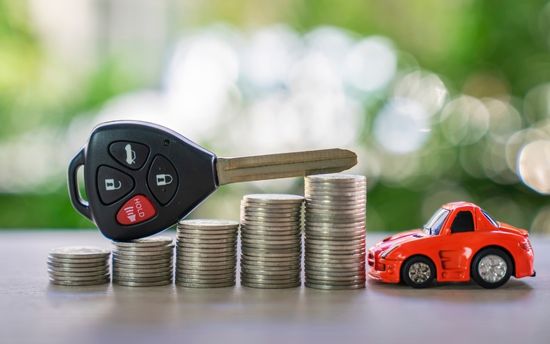Why Are Auto Loan Rates So High? Understanding the Factors Behind Rising Interest Rates

When you’re in the market for a new car, there’s more to consider than just the sticker price. Auto loan rates play a crucial role in determining the affordability of your dream vehicle. If you’ve noticed that auto loan rates seem unusually high, you’re not alone. In this blog, we’ll delve into the factors that contribute to the high auto loan rates, providing you with a comprehensive understanding of the automotive lending landscape.
The Factors Behind Rising Interest Rates
1. Economic Conditions
Auto loan rates are heavily influenced by the prevailing economic conditions. During times of economic prosperity, interest rates tend to be lower, making it more affordable for consumers to borrow money. Conversely, when the economy faces challenges, such as a recession or high inflation, interest rates tend to rise.
In recent years, economic instability has led to higher auto loan rates. Lenders adjust rates to compensate for increased financial risks, which directly affects borrowers. The pandemic’s economic impact, inflation, and uncertainty in financial markets are some of the key drivers of high auto loan rates.
2. Credit Scores and Risk Assessment
Your credit score plays a significant role in the interest rate you’re offered when seeking an auto loan. Lenders use your credit score to assess the risk of lending to you. Borrowers with high credit scores are considered less risky and are typically offered lower interest rates, while those with lower scores face higher rates.
If you’ve experienced high auto loan rates, it may be due to a lower credit score or a lack of credit history. Building and maintaining good credit is crucial to securing a more favorable interest rate on your next auto loan.
3. Length of the Loan
The term or length of your auto loan can also impact the interest rate you’ll pay. Shorter loan terms generally come with lower interest rates because they pose less risk to lenders. Longer loan terms, on the other hand, carry higher interest rates due to the extended period over which the lender must commit capital.
It’s important to strike a balance when choosing the loan term. While a longer term may reduce your monthly payments, it can cost you more in interest over the life of the loan. Opting for a 5. shorter loan term can save you money on interest in the long run.
4. Supply and Demand in the Auto Market
The law of supply and demand extends to auto loan rates. When there’s high demand for new cars and limited supply, lenders have more leverage and can charge higher interest rates. Additionally, the availability of specific financing deals from automakers and dealerships can influence the rates you’re offered.
If you’re in the market for a popular model or during a peak buying season, you may encounter higher auto loan rates due to the heightened competition among buyers.
5. Lender Policies and Regulations
Lenders have their own policies and regulations governing the interest rates they offer. These can vary significantly from one lender to another. Some lenders specialize in high-risk loans, while others focus on prime borrowers. This diversity in lending practices can result in varying auto loan rates.
Government regulations, such as the Dodd-Frank Wall Street Reform and Consumer Protection Act, have introduced new guidelines to ensure fair lending practices. However, these regulations have also increased compliance costs for lenders, which can contribute to slightly higher rates for consumers.
6. Loan Amount and Down Payment
The loan amount and the down payment you make can impact the interest rate on your auto loan. Borrowers who finance a larger portion of the car’s purchase price may face higher interest rates. Conversely, making a substantial down payment can help you secure a lower interest rate.
To get the best deal, aim for a sizable down payment and a loan amount that is manageable within your budget. This not only lowers your interest rate but also reduces the total cost of your loan.
7. Negotiation and Comparison Shopping
One of the most effective ways to secure a favorable auto loan rate is through negotiation and comparison shopping. Don’t settle for the first offer you receive. Shop around, get quotes from multiple lenders, and negotiate for a better rate based on your creditworthiness and financial situation.
Conclusion
High auto loan rates can be a significant concern for prospective car buyers. Understanding the factors behind these rates is the first step in making informed decisions about your next auto purchase. By considering economic conditions, your credit score, loan terms, supply and demand, lender policies, and negotiation strategies, you can increase your chances of obtaining a more favorable auto loan rate. Keep in mind that a lower interest rate can save you money over the life of your loan and make your dream car more affordable.
Related Articles

What Is Needed For Car Loan Eligibility?
In this comprehensive guide, we delve deep into the intricacies of car loan eligibility, equipping you with the knowledge and tools necessary to unlock the doors to your desired vehicle. From understanding the key factors that influence eligibility to practical steps for improvement, join us as we demystify the world of car loans and empower you to make informed decisions on your path to car ownership.

Exploring Factors and Solutions For Why Car Loan Rates Are So High
Let us dissect the intricate factors contributing to elevated car loan rates in this blog, also offering insights into the role of credit scores, economic dynamics, loan terms, market competition, and vehicle depreciation.

How Do Car Interest Rates Work?
With the soaring prices of vehicles, financing has become a common route for many to afford their dream cars. However, before delving into the world of car loans, it’s crucial to understand how interest rates play a pivotal role in shaping your financial commitments.

How Car Loans Works: Understanding the Mechanics
In the world of automotive dreams, the quest for that perfect car often leads us to explore the realm of car loans. Whether you’re eyeing a sleek sedan, a rugged SUV, or a sporty convertible, understanding how car loans work is paramount to navigating the journey towards owning your dream ride.




